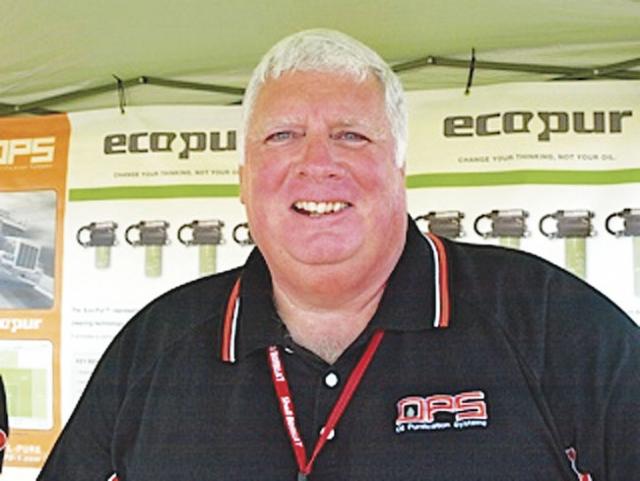Understanding Oil Contaminants

When you think about the properties of motor oil, viscosity, soot percentage and fuel usually come to mind. But there are other factors that need to be considered especially if you are extending drain intervals; total base number, oxidation and nitration. The Total Base Number (TBN) tells you how effective your base additives (Calcium, Boron & Magnesium) will counteract the effects of acids that form in the oil from sulfur and nitrogen mixing with H20 to create acid. The oxidation and nitration measures oxides that contaminate oil from the air and/or water and nitrates that are blow-by and exhaust restriction byproducts. Not all oil samples are analyzed for TBN, Oxidation and Nitration if you are extending drain intervals makes sure you have a comprehensive advanced mobile oil sample program.
The TBN is part of the specs for all oils and oil analysis labs usually report a TBN between 5-8 for mineral oils and 4-14 for synthetics. The basic rule is to maintain the TBN above 25% of the useful life. If TBN starts at 8 then the oil should be changed when TBN is reported at 2 or lower. You will always see a drop in TBN over the first oil cycle of approximately 50% but the rate of decline becomes much slower after that level is reached. There are numerous ways to keep the TBN up; eliminate the acid formation by removing H2O from the oil by utilizing an on-board oil refiner that evaporates liquid contaminants or by using a filter that is impregnated with a base additive. Removing the acid allows the base additives to remain potent as there is no acid to lower the concentration and potency. Adding base materials will add to the TBN as the oil filters through the filter media. The only thing you need to remember is whatever base is used Calcium, Magnesium or Boron will show higher levels on the oil sample results and may trigger a recommendation from lab. To prevent any confusion, make sure lab knows you are using a base enhancing filter so the increase will be expected. At OPS we have many customers using Base Enhancing Filters in addition to the EcoPur System with great success.
Oxidation increases with heat and liquid contaminants that contain oxygen and/or oxides like water, fuel or antifreeze. The best way to keep the oxidation low and prevent any damage to engine due to corrosion or rust is to remove the liquid contaminants or by properly maintaining the engine to keep fuel and antifreeze from leaking into oil.
Nitration is basically caused by the nitric oxide that is in exhaust gases mixing with the oil through EGR (exhaust gas recirculation) process or back pressure in exhaust system not allowing gases to flow freely causing blow-by etc. Keep your DPF (diesel particulate filter) clean by regenerating when necessary and ensure the muffler is functioning properly.
Extending drains also requires that the oil must be free of solid contaminants. There are numerous by-pass filtration systems that will remove solid contaminants down to levels that virtually eliminate wear damage caused by particles being trapped between the tolerances of moving parts. There are other products on the market that will help to keep the engine clean. For example, a rare earth magnet that attaches to the primary full flow filters will trap all ferrous (iron) particulates in the filter. This will help to keep metal shavings and wear material out of the oil. Keep in mind that oil goes from the oil pan to the primary filter first before entering oil galleys to lubricate the engines parts. The oil with wear metals return to the pan and start the cycle all over again. The benefit of the magnets is the oil is free of iron etc., the only downside is that any oil sample will not report a wear problem as contaminant to trapped in filter. I would suggest if you use a magnet that you have filter opened up for inspection when you change filters. This will give you a visual indication if wear is excessive.
Stop by the OPS-Oil Purification Booth # 1012 at The Great American Truck Show 8/22-24 in Dallas for additional info.
If you have any questions or topics you would like to see in this column, please email me at [email protected]
